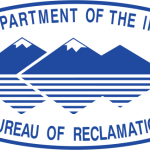- Industry: Government
- Number of terms: 15655
- Number of blossaries: 0
- Company Profile:
A U.S. Department of the Interior agency that oversees water resource management incuding the oversight and operation of numerous diversion, delivery, and storage projects the agency has built throughout the western United States for irrigation, water supply, and attendant hydroelectric power ...
Land which when farmed in adequate size units for the prevailing climatic and economic setting, and provided with the essential on-farm improvements of removing vegetation, leveling, soil reclamation, drainage, and irrigation related facilities, will generate sufficient income under irrigation to pay all farm production expenses; provide a reasonable return to the farm family's labor, management, and capital; and at least pay the operation, maintenance, and replacement costs of associated irrigation and drainage facilities.
Industry:Engineering
The removal of all vegetation such as trees, shrubs, brush, stumps, exposed roots, down timber, branches, grass, and weeds. The removal of all rubbish and all other objectionable material. See grubbing.
Industry:Engineering
The ratio of the length of a river's thalweg to the length of the valley proper. A measure of a river's meandering. Rivers with a sinuosity less than 1.5 are usually considered straight.
Industry:Engineering
The average period in years between storm events equal to or larger than a given amount. The reciprocal of the probability of that storm event being equaled or exceeded in any year.
Industry:Engineering
Influence of plants upon each other caused by products of metabolism, e.g., creosote bushes produce a toxic substance which inhibits the growth of other plants in the immediate vicinity.
Industry:Engineering
The predecessor agency of the Federal Energy Regulatory Commission (FERC). The Federal Power Commission was created by an Act of Congress under the Federal Water Power Act on June 10, 1920. It was charged originally with regulating the electric power and natural gas industries. The Federal Power Commission was abolished on September 20, 1977, when the Department of Energy was created. The functions of the Federal Power Commission were divided between the Department of Energy and the Federal Energy Regulatory Commission.
Industry:Engineering
A procedure used to establish, under tightly controlled discipline, a safe environment for maintenance, repair, or inspection. It includes systematically isolating pertinent equipment from all sources of hazardous energy (hydraulic, electrical, mechanical, pneumatic, chemical, etc.) and attaching safety tags or locks to the appropriate controls. Also, it includes a written statement that documents isolation of the equipment (also referred to as lockout or tagout).
Industry:Engineering
A barrier built across a river, comprising a series of gates which when fully open allow the flood to pass without appreciably increasing the flood level upstream of the barrage.
Industry:Engineering
A barrier built across a watercourse to impound or divert water. A barrier that obstructs, directs, retards, or stores the flow of water. Usually built across a stream. A structure built to hold back a flow of water. See afterbay dam, ambursen dam, arch dam, buttress dam, check dam, coffer dam, concrete dam, crib dam, detention dam, diversion dam, double curvature arch dam, earth dam, embankment dam, gabion dam, gravity arch dam, gravity dam, hollow gravity dam, hydraulic fill dam, industrial waste dam, masonry dam, mine tailings dam, multiple arch dam, multipurpose dam, overflow dam, precast dam, prestressed dam, regulating dam, rockfill dam, roller-compacted concrete dam, rubble dam, or saddle dam.
Industry:Engineering
A State-issued document that serves as legal evidence that an approved application has been physically developed and the water put to beneficial use. The certificate establishes: priority date, type of beneficial use, and the maximum amount of water that can be used. Verification must be provided to the State through a survey conducted by an approved water-rights examiner. Even certified rights are subject to occasional review to ensure continued beneficial use.
Industry:Engineering
